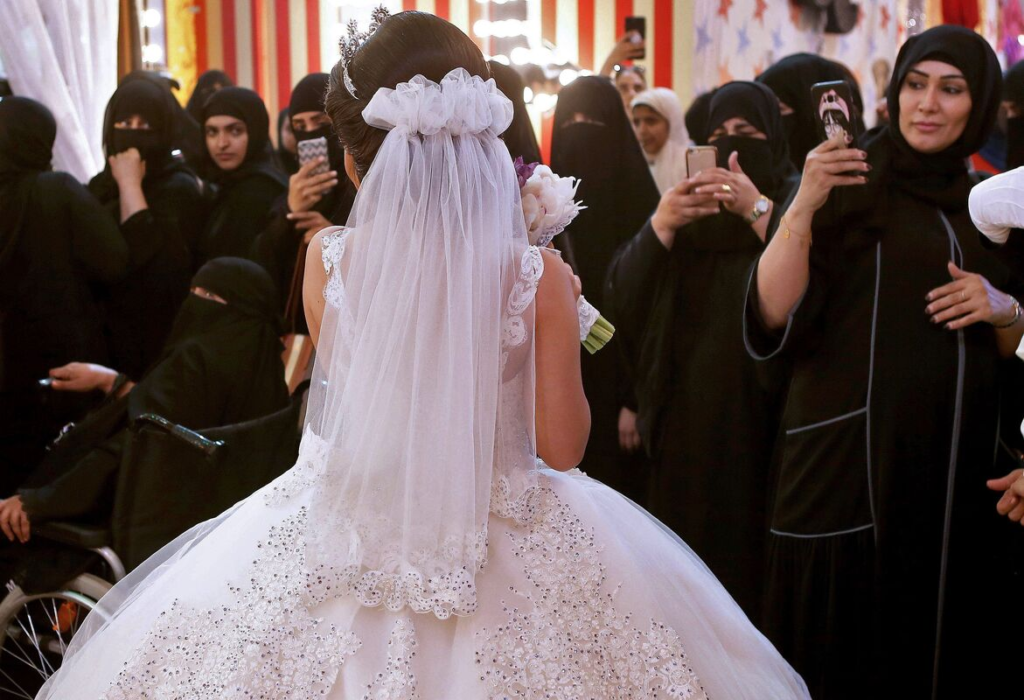Kuwait Marriage and Divorce trends have become a hot topic in recent years. As society changes and cultural expectations shift, many families are feeling the impact. A newly released report by the Central Statistical Bureau has brought the conversation into the spotlight again with some eye-opening numbers.
According to the 2025 statistics, Kuwait has seen both a rise in the number of marriages and a noticeable increase in divorce cases. This dual trend of more love and more loss is causing concern among social experts, religious scholars, and policymakers alike.
Rising Marriages: A Sign of Hope or Cultural Pressure?
The number of marriages in Kuwait rose by approximately 5% in 2024 compared to the previous year. While this might seem like a positive sign, experts warn that the story is more complex. Many young Kuwaitis are marrying earlier due to family pressure, financial support from the government, or social expectations.
In 2025, Kuwait recorded 13,820 marriage contracts, up from 13,150 in 2024. The increase may reflect economic recovery and a return to social gatherings post-COVID, but it also highlights concerns about whether these marriages are built on strong foundations.
Young couples, particularly those between the ages of 18–30, make up more than 60% of newlyweds. Many of these marriages happen within families, arranged by parents or close relatives. While tradition plays a vital role in maintaining culture, it can also sometimes lead to rushed decisions.

Divorce Numbers in Kuwait Continue to Rise
Perhaps the more troubling part of the report is the sharp rise in divorce rates. In 2025, Kuwait recorded 7,640 divorces, an 11% increase compared to the previous year. This marks one of the highest divorce rates in the Gulf region.
This means that for every two marriages, there is one divorce, a ratio that has alarmed many. Divorce was once considered a rare and shameful occurrence in Kuwait. Today, it is increasingly normalized, especially among younger generations.
What’s Driving the High Divorce Rates?
1. Lack of Compatibility
Many couples rush into marriage without fully understanding their partner’s values, goals, and personality. As a result, arguments and misunderstandings lead to an early breakdown in trust.
2. Social Media Pressure
Social media creates unrealistic expectations for relationships. Many compare their personal lives to filtered online posts, leading to dissatisfaction and insecurity in marriage.
3. Economic Stress
While Kuwait remains one of the wealthiest nations in the Gulf, personal debt and job uncertainty can put pressure on marriages. In some cases, the financial burden becomes too much to handle.
4. Changing Gender Roles
Modern Kuwaiti women are more educated and independent than ever before. While this is a positive change, it sometimes leads to conflicts with traditional expectations within marriage.
5. Lack of Premarital Counseling
Unlike some countries, premarital counselings is not mandatory in Kuwait. This often leaves couples unprepared to handle real-life relationship challenges.
Divorce Impact on Children and Society
Experts say the rising divorce rate is not just a personal issue; it affects the entire society. Children of divorced parents may struggle with emotional instability, academic performance, and social relationships. The emotional burden often stays with them for years.
Social workers also warn that broken families can increase the risk of youth falling into bad habits, including drug abuse and criminal behaviour. Mental health support systems are growing in Kuwait, but experts believe much more needs to be done.
Government and Religious Efforts to Reduce Divorce
In response to the rising numbers, several government initiatives have been introduced:
- Family Counseling Centers: Offering support before and after marriage
- Workshops for Young Couples: Teaching communication, conflict resolution, and financial planning
- Incentives for Staying Married: Tax reductions, housing priority, and childcare support
Islamic scholars also urge young people to consider the religious and spiritual aspect of marriage. Marriage is considered a sacred contract in Islam, and divorce, while allowed, is strongly discouraged unless absolutely necessary.
Opinions from Experts and the Public
Dr. Maryam Al-Duwaila, a leading Kuwaiti sociologist, believes that education is key. We need to shift our focus from simply encouraging marriage to preparing people for a healthy marriage, she says. She also emphasises the role of emotional intelligence and self-awareness.
Many citizens, however, feel stuck between tradition and modernity. While they appreciate the freedom to make personal choices, they also fear judgement from society if their marriage fails.
Is Love Enough in Modern Kuwait?
The emotional side of the Kuwait Marriage and Divorce story cannot be ignored. Many marriages begin with love and excitement but fail due to poor communication or unmet expectations. Love alone may not be enough to withstand the pressures of modern life.
The solution might lie in a mix of traditional values and modern awareness. Premarital education, open conversations about expectations, and long-term support can make a difference.

How Kuwait Compares with Other Gulf Countries
Compared to neighbors like Saudi Arabia, UAE, and Qatar, Kuwait has one of the highest divorce rates. This may be due to its relatively liberal society, greater individual freedom, and easier divorce process.
- Saudi Arabia: Stronger religious control and cultural restrictions lead to fewer divorces
- UAE: Lower divorce rates but rising among expatriates
- Qatar: Similar trends but with more family-based intervention programs
Still, the Kuwaiti government is more open to discussing and addressing the issue than many of its counterparts.
What the Future Holds: A Balanced Perspective
Looking ahead, experts believe that both marriage and divorce trends will continue to rise unless serious action is taken. Kuwait needs to invest in relationship education, emotional health programs, and public awareness campaigns.
The Kuwait Marriage and Divorce statistics are more than just numbers. They reflect the emotional health of the nation. Behind every number is a story—some of hope, others of heartbreak.
To truly improve the situation, society must move from blame to understanding, from shame to support, and from quick fixes to long-term planning.
Final Thoughts
The 2025 report paints a complex picture. Yes, more people are falling in love and getting married. But more are also ending their relationships in divorce. This dual trend of more love and more loss calls for a national conversation about what it means to commit, to communicate, and to grow together.
By focusing on early education, support systems, and societal awareness, Kuwait can turn this challenge into an opportunity for a healthier, happier future.
Do follow Gulf Magazine on Instagram
Also Read – Afghan Cueist Dominates 3 Rivals in Powerful Tournament Run



